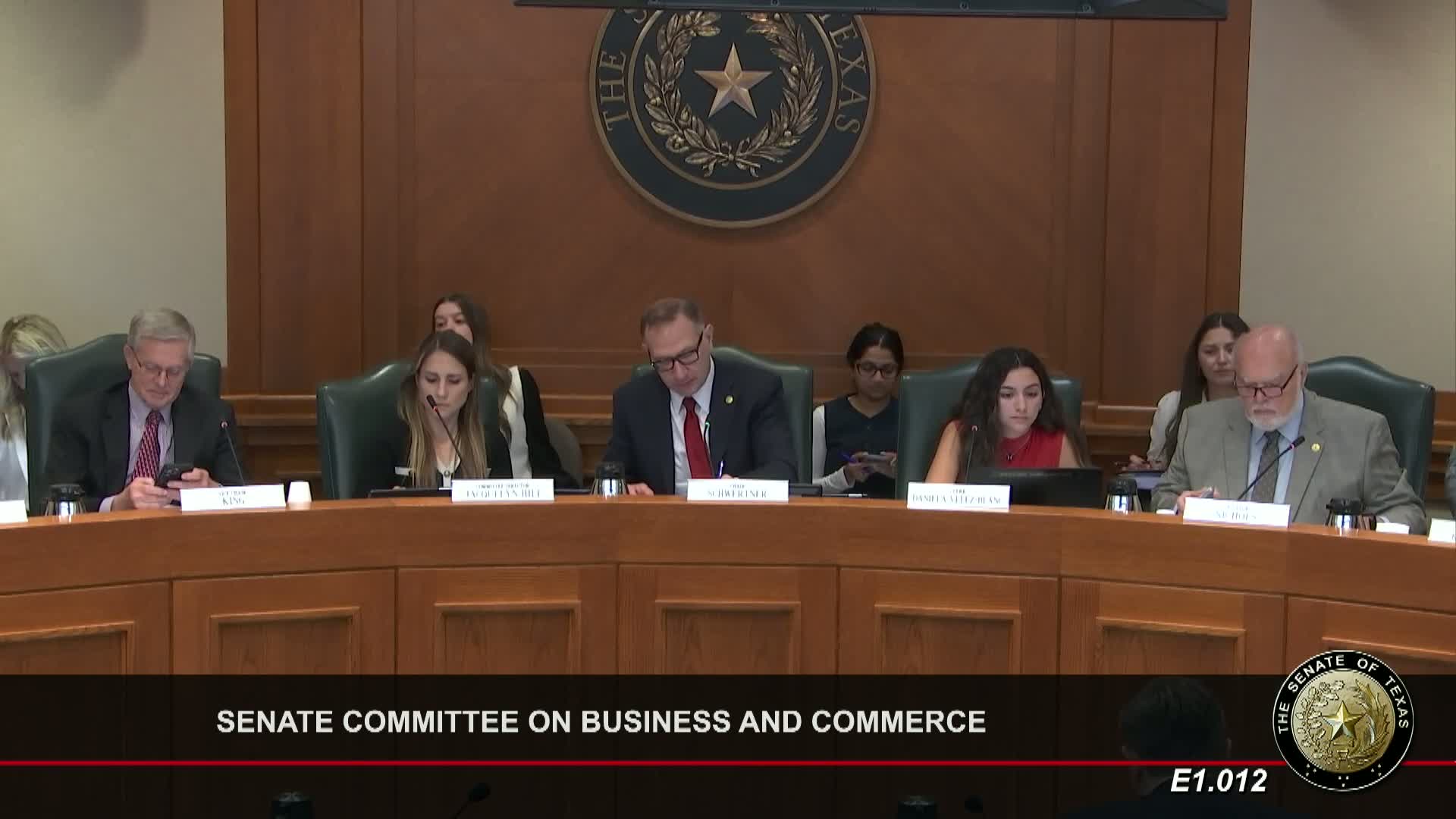Article not found
This article is no longer available. But don't worry—we've gathered other articles that discuss the same topic.
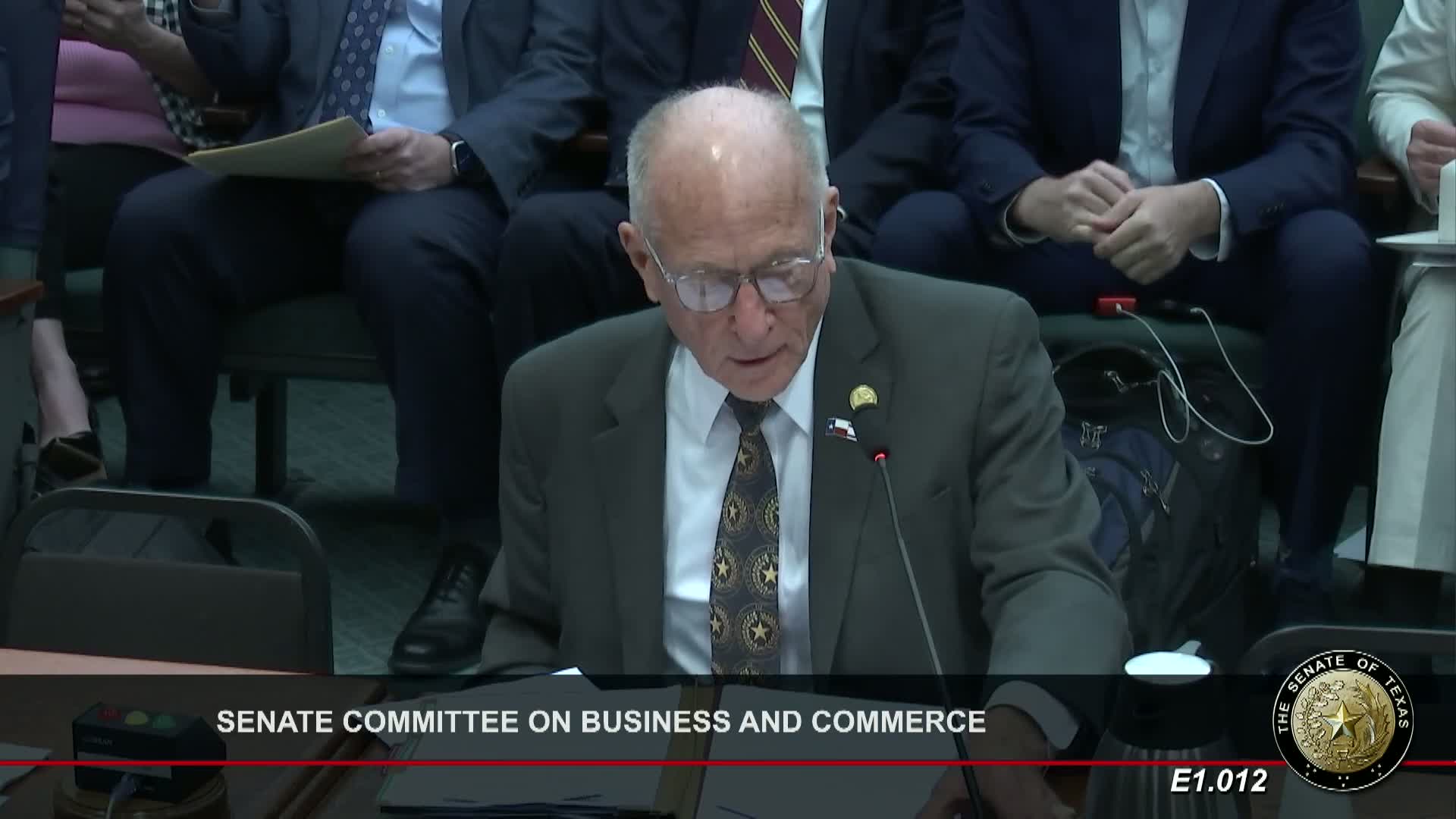
Senate committee hears competing views on ‘right to repair’ electronics bill
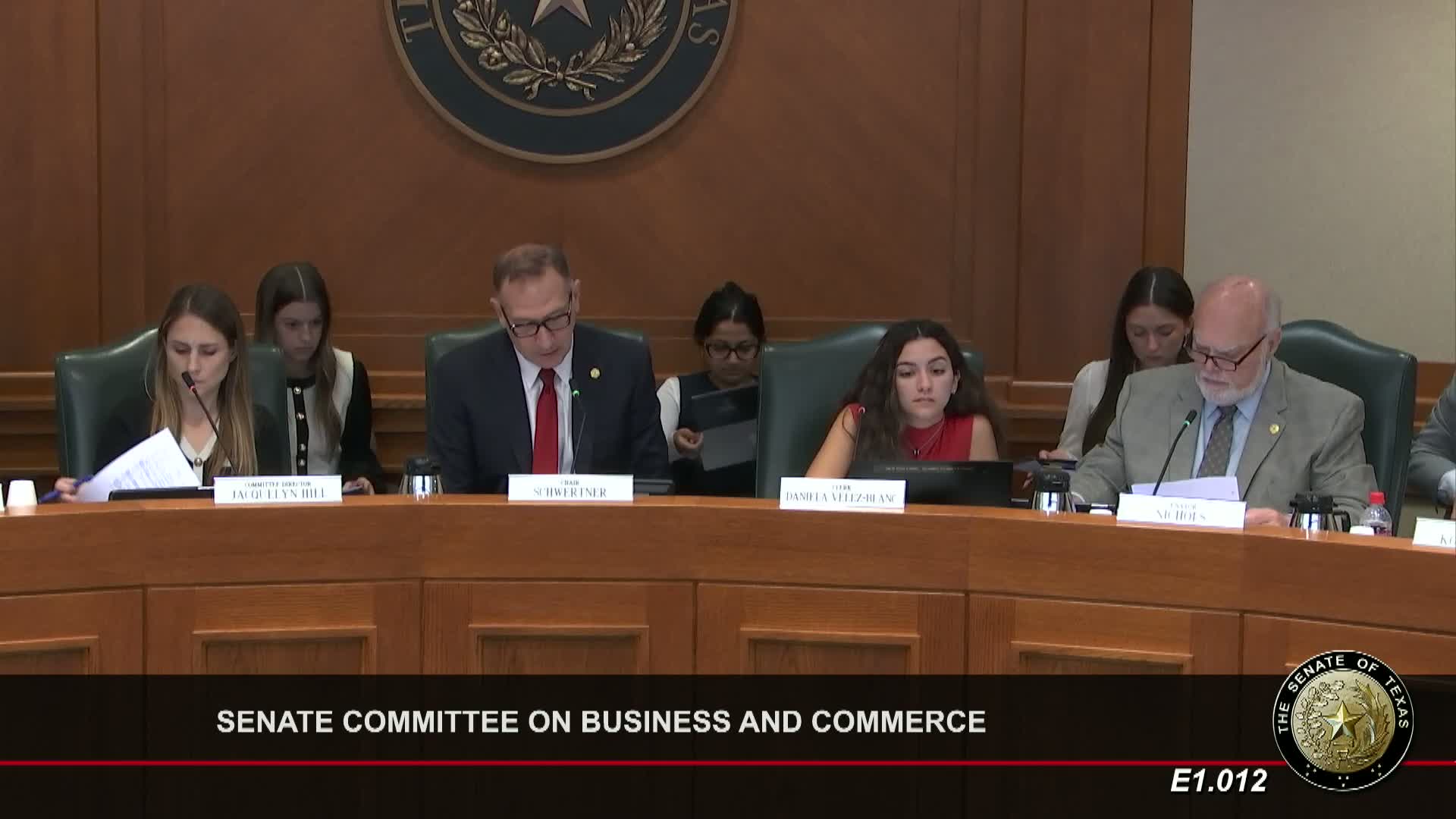
Committee weighs temporary alternative recovery for Permian transmission build‑out
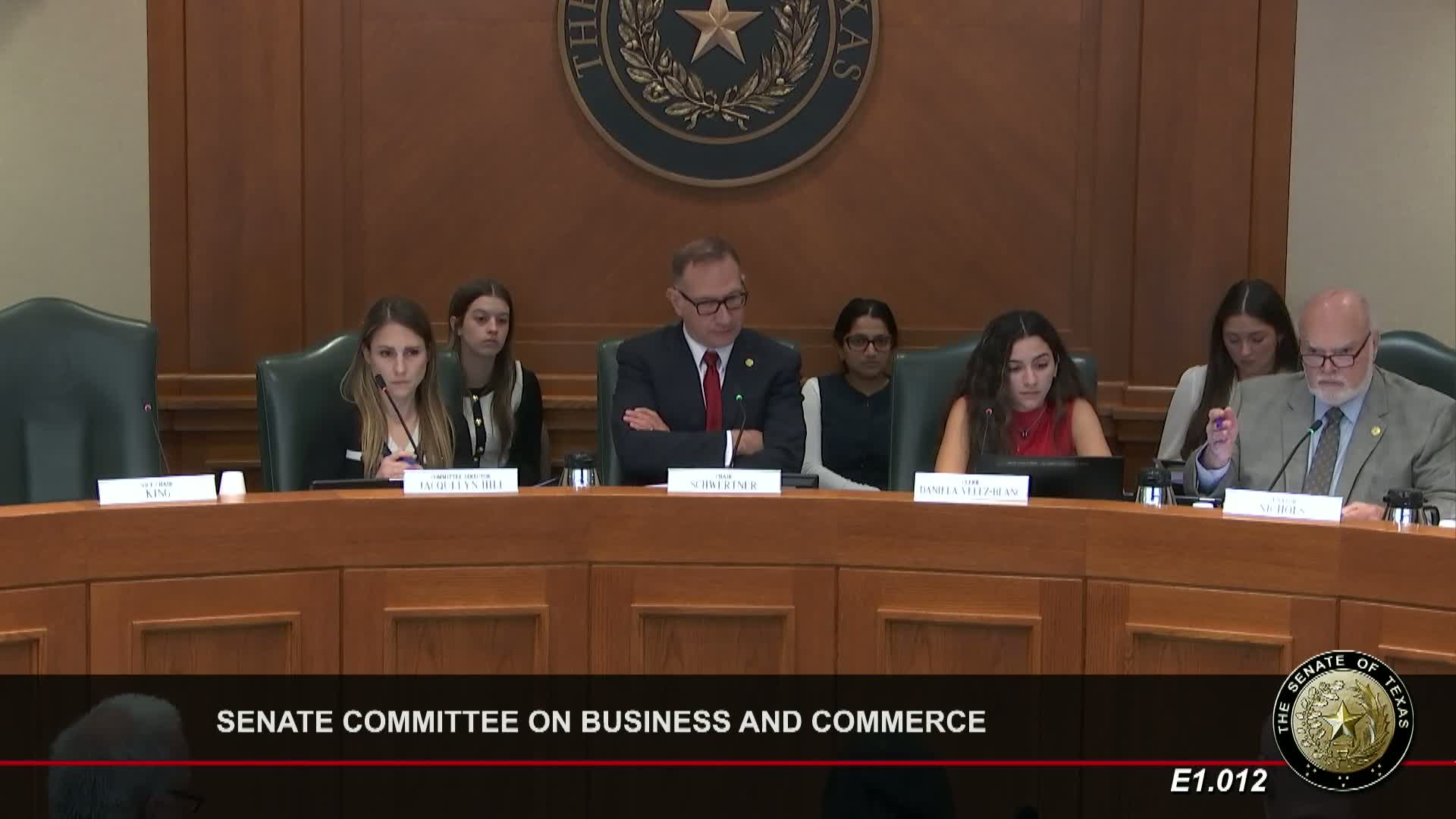
Committee reviews utility wildfire and pole‑inspection bills; co‑ops and utilities seek clarified reporting rules
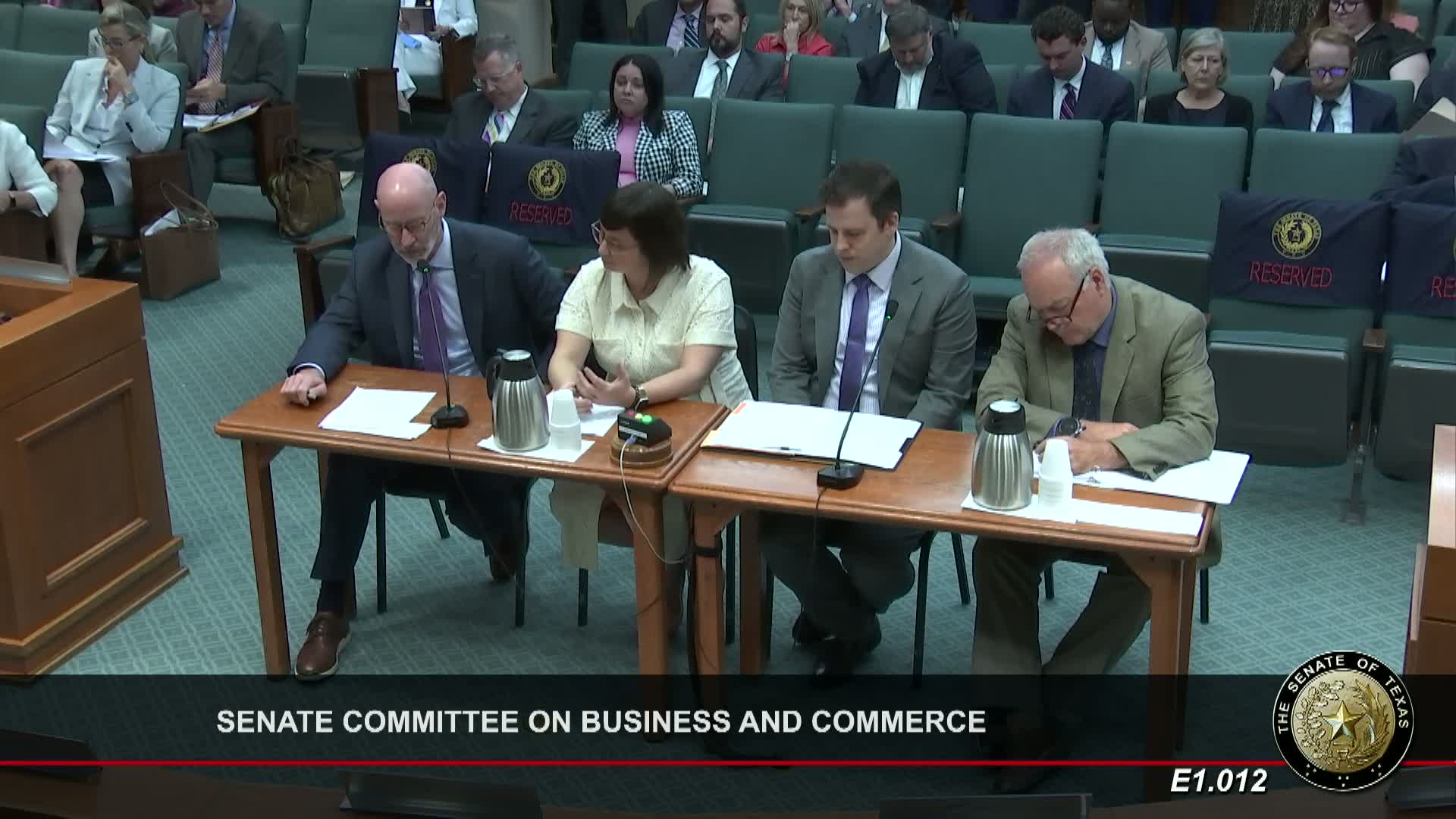
Senate committee hears proposal to shift TWIA borrowing to state financing and add transparent storm surcharges
